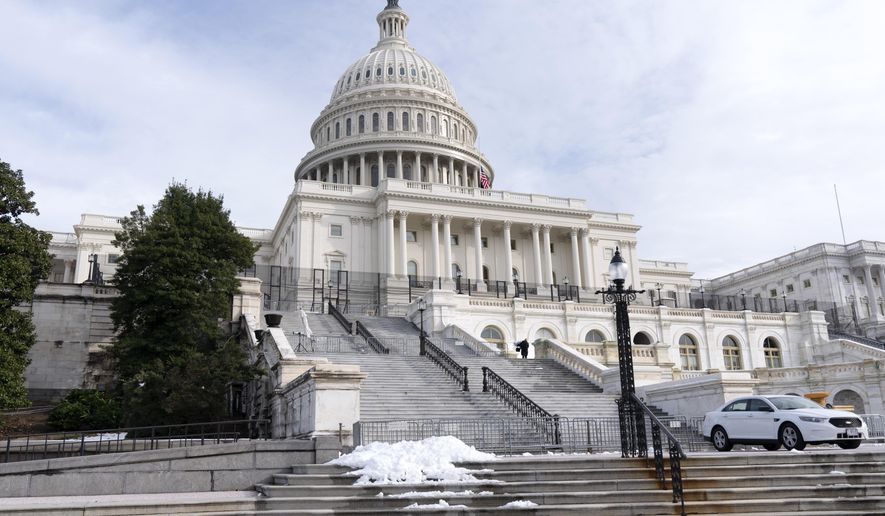The House committee investigating last year’s U.S. Capitol attack is confronting the question of how to deal with Republican lawmakers who refuse to participate in its probe.
Rep. Jim Jordan of Ohio this week became the latest and most high-profile Republican in Congress to snub the committee.
The panel, made up of seven Democrats and two Republicans, must now decide whether to subpoena Mr. Jordan and Rep. Scott Perry of Pennsylvania, which would threaten to escalate the confrontation. If the lawmakers refuse the subpoena, the committee would then have to consider the highly unusual step of a criminal referral against fellow Congress members.
For Democrats, the stakes are high for advancing the probe.
“Every day closer to the midterms is another day of urgency,” said Democratic strategist Antjuan Seawright. “If the majority shifts or changes, you can best believe that their number one business for opposing leadership will be to dissolve the committee.”
Hitting fellow Congress members with subpoenas and threats of punitive action also would set a dangerous precedent, which could come back to bite Democrats whenever they are in the minority.
SEE ALSO: Jan. 6 panel warns Jordan over refusal to participate with Capitol riot probe
“There used to be a type of code among members and a sense of integrity, but Democrats threw that out the window, so they should expect nothing less when Republicans take back the majority,” said GOP strategist Jimmy Keady.
The probe of the Jan. 6, 2021, riot is a partisan flash point on Capitol Hill. Democrats have framed the committee and its investigation as an essential task to get to the bottom of an “attack on democracy.” Republicans call it a partisan effort to smear former President Donald Trump and the GOP.
Mr. Jordan sent a letter to the committee’s chairman, Democratic Rep. Bennie G. Thompson of Mississippi, saying he would not participate with the “partisan” investigation.
The committee requested a meeting with Mr. Jordan in December to discuss what role Republican lawmakers might have had in the Capitol riot. Mr. Jordan has said he spoke to Mr. Trump by phone during the attack.
In response to Mr. Jordan’s letter, a spokesman for the Jan. 6 select committee accused the lawmaker of backtracking his initial intentions to cooperate with the panel on their investigation.
“Mr. Jordan has previously said that he would cooperate with the committee’s investigation, but it now appears that the Trump team has persuaded him to try to hide the facts and circumstances of Jan. 6th,” the spokesman said. “The Select Committee will respond to this letter in more detail in the coming days and will consider appropriate next steps.”
Mr. Perry said in December he would not participate in the committee’s probe when the panel requested an interview. He called the investigation “illegitimate.”
The committee condemned Mr. Perry over his refusal but didn’t issue a subpoena for his testimony.
Last November, former Trump strategist Steve Bannon was indicted by a federal grand jury on two charges of criminal contempt for defying the committee’s subpoena for documents and testimony.
The House voted in December to hold former White House Chief of Staff Mark Meadows in criminal contempt of Congress for refusing to cooperate with the panel’s probe.
The vote was 222-208 along party lines, except for Reps. Liz Cheney of Wyoming and Adam Kinzinger of Illinois, the two anti-Trump Republicans who sit on the Jan. 6 committee.
Pope “Mac” McCorkle, a public policy professor at Duke University, said Democrats are facing “a definite risk” in being seen as overreaching in their investigation if they can’t come up with clear evidence that Republicans and Mr. Trump had ties to the riot.
“They need a smoking gun or smoking guns,” he said. “They really do need to find shocking, kind of irrefutable evidence of a plot or conspiracy that Trump was directly involved.”
• Mica Soellner can be reached at msoellner@washingtontimes.com.




Please read our comment policy before commenting.